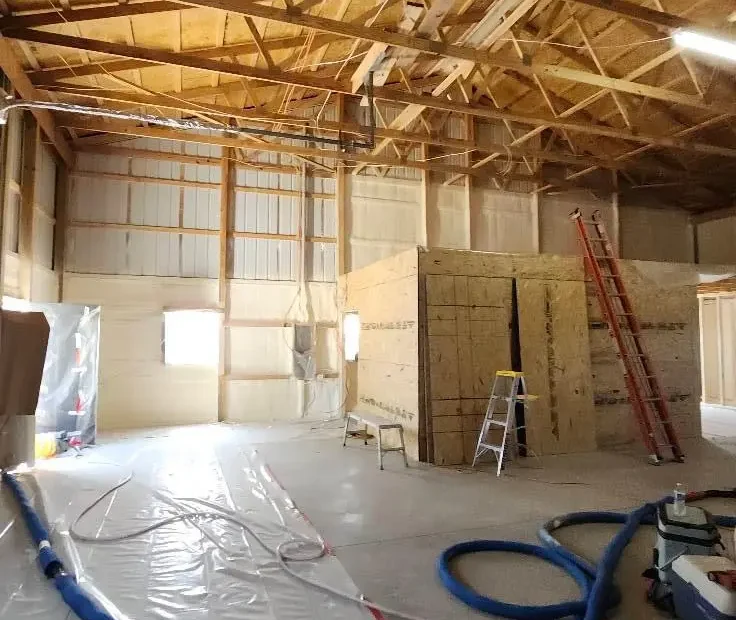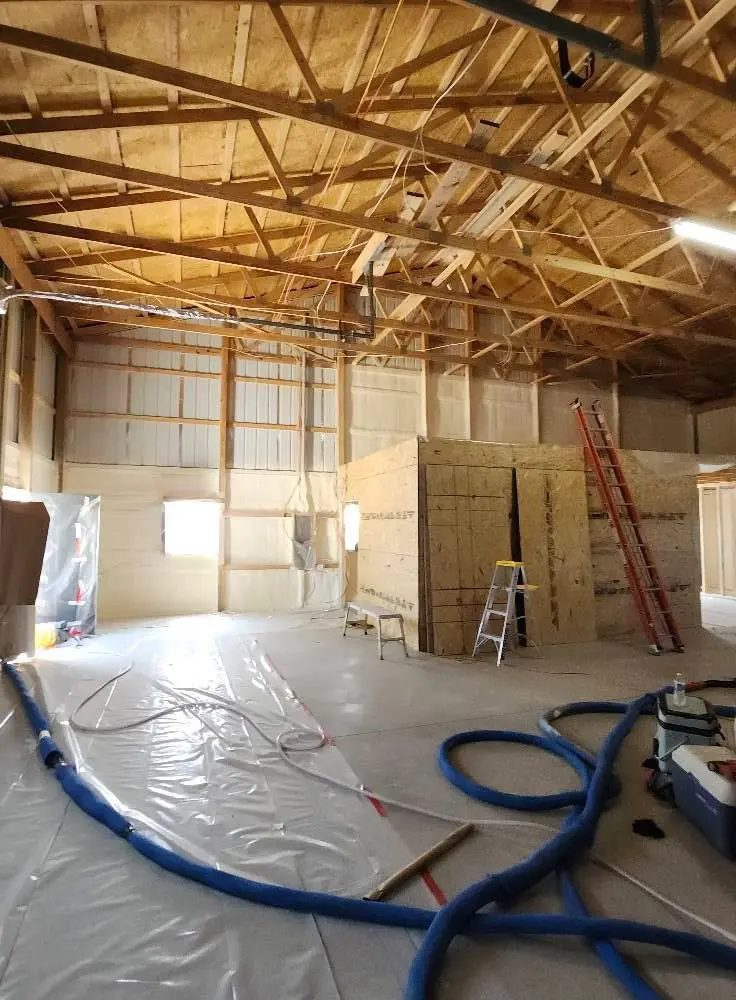Understanding insulation is crucial for potential home buyers as it significantly impacts energy efficiency, comfort, and overall home value. By familiarizing yourself with essential insulation facts, you can make more informed decisions about your future investment. This blog delves into the key aspects of insulation that every home buyer should know.
The Importance of Insulation in Your Home
Insulation is often overlooked, yet it serves as the backbone of a home’s energy efficiency and comfort levels. When a house is well-insulated, it retains heat during the winter months and stays cool in the summer. This balance not only enhances living conditions but also translates to significant savings on energy bills. For potential buyers, understanding the role of insulation is imperative because it can influence overall home maintenance costs and future renovation decisions.
Moreover, insulation impacts the home’s environmental footprint. Houses with poor insulation can lead to increased energy consumption, resulting in higher greenhouse gas emissions. Thus, choosing a well-insulated home aligns with sustainable living principles. This growing awareness about sustainability among home buyers highlights the vital role insulation plays—not just in comfort, but also in responsible home ownership.
Lastly, effective insulation contributes to soundproofing. For families, noise levels can significantly affect quality of life. High-quality insulation materials provide not only thermal barriers but also diminish outside noise, creating a more peaceful indoor environment. When traversing the market, understanding how insulation can provide both comfort and tranquility is a key insight that can shape your property search.
Types of Insulation: What to Look For
There are numerous types of insulation available, each serving distinct purposes and benefits. Fiberglass insulation is one of the most common options on the market, known for its efficiency and cost-effectiveness. It’s available in batts or blown forms, which can cater to various spaces within a home. When evaluating properties, inspecting the type of insulation installed can offer insight into the property’s energy efficiency, as well as the potential need for upgrades.
Spray foam insulation is another trending choice among home builders for its remarkable air sealing capabilities. Unlike traditional options, spray foam expands on application, filling gaps and cracks that are typically left unaddressed. This characteristic not only enhances insulation performance but can also bolster the structural integrity of your home. When considering what to know about insulation when buying a house, knowing the differences in these materials empowers buyers to select homes that fit their needs.
Reflective or radiant barrier insulation, often found in attics, serves to reflect radiant heat away from living spaces. This type is particularly beneficial in warmer climates, contributing to cooler indoor temperatures and lowered air conditioning costs. Buyers should assess whether reflective barriers are present in prospective homes, as they can provide long-term savings. Considering the type of insulation material is not just about initial costs; it’s an investment into future savings and comfort.
How Insulation Affects Energy Efficiency
Energy efficiency plays a monumental role in the total cost of home ownership, and insulation serves as a critical factor in this equation. Homes with effective insulation can reduce heating and cooling costs dramatically, providing immediate financial benefits. When the home is sealed correctly, the HVAC system doesn’t have to work as hard to maintain a comfortable temperature, leading to longer system life and less frequent maintenance.
Additionally, the energy efficiency of a home can affect its resell value. Homes that are well-insulated typically hold higher values on the market as they offer prospective buyers an opportunity for lower energy expenditures. When evaluating a home’s energy rating, the effectiveness of its insulation is assessed, making it an essential point to check during the buying process. Understanding this link between insulation and energy efficiency can bolster your negotiating position during home buying.
Furthermore, modern energy codes often require strict insulation standards that builders must adhere to. Familiarizing yourself with these codes can provide leverage in negotiations—homes meeting or exceeding codes signify an investment in quality performance. This includes understanding aspects like R-value, which measures insulation effectiveness. Thus, being equipped with knowledge of how insulation impacts energy efficiency allows home buyers to make smart decisions.
Assessing Insulation Quality During House Inspections
During house inspections, assessing insulation quality is crucial. Home inspectors often check not only the presence of insulation but also its condition and effectiveness. Signs such as uneven temperature distribution or drafts may indicate insufficient insulation. It’s essential for buyers to ask detailed questions regarding insulation during the inspection process to avoid any unexpected expenses later on.
Another significant point lies in the age and type of insulation. For instance, older insulation materials, like vermiculite, may contain asbestos, posing health risks. The inspection provides an opportunity to evaluate the safety and adequacy of existing insulation. Being proactive in this regard ensures that home buyers are making informed choices based on science and safety rather than aesthetics.
Potential buyers should also investigate the insulating technique used. Insulation can perform poorly if it is improperly installed or has settled over time. Upgrading insufficient insulation can lead to better energy efficiency and overall comfort. Therefore, focusing on insulation during house inspections is not just a matter of preference but a necessary step in ensuring a sound purchase.
Common Insulation Issues to Watch Out For
As with any home feature, insulation can encounter several issues that home buyers need to be aware of. Water damage, for instance, can lead to mold growth, making insulation less effective. Inspecting the condition of insulation near roof areas, basements, and exterior walls can reveal potential moisture problems. Spotting these issues during your home search can save you significant health and repair costs in the future.
Another common issue is air leakage from improperly sealed areas. This can be particularly detrimental to energy efficiency. Buyers should inquire about prior audits or energy assessments to identify potential weaknesses in the insulation. Homes that have been appropriately cared for generally have documentation concerning insulation upgrades, ensuring peace of mind when it comes to energy performance.
Furthermore, pests such as rodents and insects can compromise insulation integrity. They may create holes leading to additional air leaks or introduce contaminants that undermine insulation performance. Regular inspections can help detect these unwanted guests before they cause serious issues. In essence, being aware of these common insulation problems prepares buyers to make proactive choices and maintain their new homes effectively.
Upgrading Insulation: When and Why It Matters
Insulation upgrades can sometimes be necessary, particularly in older homes. Many homes built prior to 2000 may not meet today’s energy efficiency standards. Upgrading insulation can increase comfort levels while simultaneously reducing energy bills. For buyers, understanding when to consider these upgrades is essential for making sound financial decisions post-purchase.
Deciding to upgrade insulation also depends on climate considerations. Homes in colder regions will benefit most from enhanced insulation, while moderate climates may require less aggressive strategies. Buyers should evaluate both current and future needs—thinking about the types of insulation and its long-term benefits can help in deciding the extent of the upgrade required.
Moreover, with technological advancements in insulation materials, modern options can provide better performance than older versions. Buyers should also consider the resale value when upgrading insulation; an energy-efficient home typically attracts more interest on the market. Thus, making informed choices about insulation upgrades not only enhances comfort but is also a savvy investment in property value.
Regulatory Standards and Best Practices
Understanding local building codes and regulations concerning insulation is a critical component of the home buying process. Various regions impose different requirements regarding insulation types and R-values, which are crucial for energy conservation. Familiarizing yourself with these standards can empower buyers during negotiations and ensure that the home meets local compliance.
Additionally, following best practices in hiring contractors for insulation work can significantly affect the quality of materials and installation techniques used. Ensuring that your insulation meets prevailing standards creates a home that is not only more efficient but also safer and more comfortable. Buyers should seek documentation from any remodeling or insulation work that has taken place, ensuring that everything aligns with current codes.
Investing in a home that adheres to regulatory standards can yield long-term dividends. Such properties often showcase superior energy efficiency, leading to reduced operational costs. As home buyers navigate their purchasing journey, adhering to these regulatory insights can bolster both immediate comfort and future financial benefits. This diligence in understanding insulation standards becomes part of wiser decision-making in home ownership.
Final Thoughts on Home Insulation
In conclusion, being well-informed about insulation allows home buyers to make better choices not only for immediate comfort but also for long-term savings and sustainability. By keeping the key insulation facts in mind, you can navigate your home buying journey with confidence.

